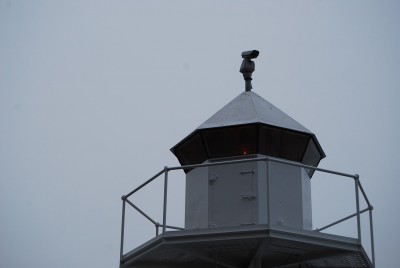A string of surveillance scandals in Norway, especially the recent reports of suspected illegal monitoring of mobile telephones in the country’s power center in Oslo, have led to a call for a new government ministry that would be responsible for national security. Responsibility at present is far too diffuse, and inefficient, claims a former head of Norway’s national security authority NSM (Nasjonal sikkerhetsmyndighet).

Jan Erik Larsen, a former director of NSM, told newspaper Dagsavisen on Monday that Norway needs a more effective division of responsibility among the various state agencies that are supposed to protect people in Norway against illegal surveillance and espionage.
At present, responsibility is divided among NSM, the police intelligence unit PST (Politiets sikkerhetstjeneste) and the military’s intelligence unit known as E-tjenesten. The national communications authority Post- og teletilsynet is supposed to monitor it all, while PST and E-tjenesten report to different ministries, justice and defense respectively.
Weak links
Larsen, who headed NSM from 2003 until 2005, contends this all means that central responsibility is “pulverized” among the various agencies and the two ministries. “Norway needs its own security minister who would be responsible for data security,” Larsen told Dagsavisen. “Remember that these are all heavy-weight agencies with lots of bureaucracy. Not even the Office of the Prime Minister can really maintain an overview or run things.”
That’s because the agencies, which are highly secretive by nature, have different goals “and don’t always pull in the same direction,” Larsen said. “Norway isn’t exactly known for being a leader within computer security. We are perhaps one of the weakest links.”
It’s a paradox, he notes, because Norway is wealthy in terms of both money and technology. The country arguably should have far more sophisticated and streamlined security systems, not least, Larsen notes, because Norway is “interesting for spies because of its oil resources, technology, global commitments and as a member of NATO.”
Not a new problem
Larsen, who has served as brigadier and chief of security for the defense department’s high command, was also a member of a government commission charged with identifying Norway’s vulnerability. The commission was led by Kåre Willoch, a former prime minister for the Conservative Party in the 1980s who Larsen said concluded that Norway needed its own security ministry, but nothing came of it. Nor were any effective measures put into place to hinder telephone tapping. NSM did procure encrypted telephones for government ministers, he said. PST would thus be able to more easily investigate “if something serious happened.”
Newspaper Aftenposten’s recent string of reports about the suspected presence of false mobile phone base stations around downtown Oslo still hasn’t led to any of the agencies responsible launching any real efforts to locate them, according to Aftenposten itself. The false base stations, also known as “IMSI-catchers, -grabbers” or “stingrays,” can allow spies to pluck up mobile phone conversations, text messages and Internet activity. Aftenposten has also reported that PST, for example, spends little time trying to prevent spying, with far more attention paid to anti-terror efforts than counter espionge.
Members of Parliament and, most recently, the President of the Parliament (Norway’s second-highest ranking official after the monarch) have been demanding a response from Justice Minister Anders Anundsen. They’re alarmed that they’ve been subject to illegal surveillance, along with other government leaders, business and finance officials, embassies and even the new secretary general of NATO, Jens Stoltenberg. Before moving to Brussels earlier this autumn, Stoltenberg used offices in downtown Oslo in the area where Aftenposten’s testing found evidence of false base stations.
An emergency meeting on the alleged illegal mobile phone surveillance was held last week among the communications authority (Post- og teletilsynet) and representatives of large mobile network owners Telenor, Tele2 and TeliaSonera, which owns NetCom of Norway. NSM officials also attended the meeting at the state Transportation Ministry (in charge of communication). Some have claimed that the telecoms companies have been too lax with security, and the goal was to make the networks more secure, “but it won’t be easy,” admitted the head of the authority, Elisabeth Aarsæther. “This is very complicated.”
Protecting their turf
There are indeed many players involved, many of whom are described as “small kings” who are more concerned with their own position and budgets than they are with coordinated efforts to tackle the problem of illegal surveillance. “There are around 4,000 to 5,000 people working with data security in Norway today,” one source told Dagsavisen. “We could have done fine with 600 or 700, if we had vision and were better coordinated.”
Hadia Tajik, a former minister in the former Labour-led government that held power for eight years, admits that not enough has been done to tackle the problem. “We’ve had a broad, comprehensive debate on better preparedness in Norway,” Tajik, who now serves a justice spokesperson for Labour, told newspaper Dagbladet earlier this year. “The leader of NSM has sought higher priority for cyber security at a strategic level. We have identified the threat, put technology into use, but we haven’t come far enough with concrete measures.”
Meanwhile, vehement denials have been issued by various embassies whose governments are suspected of having placed the base stations round Oslo. China’s embassy wrote in an email to Dagsavisen that allegations it was responsible were “groundless,” and that Chinese officials expect “relevant Norwegian authorities” to investigate and make results public. The Israeli embassy denounced suggestions it was involved, while the Russian Embassy didn’t respond to a request for comment.
The US Embassy refused to comment on claims it was involved in the surveillance, but sent Dagsavisen an email noting that Norwegian authorities were responsible for security measures outside the embassy’s own property. The US Embassy, which was accused just last year of carrying out mobile phone surveillance in Oslo, and also on earlier occasions, claimed it had “good cooperation” with local authorities and would offer assistance if asked.
newsinenglish.no/Nina Berglund

